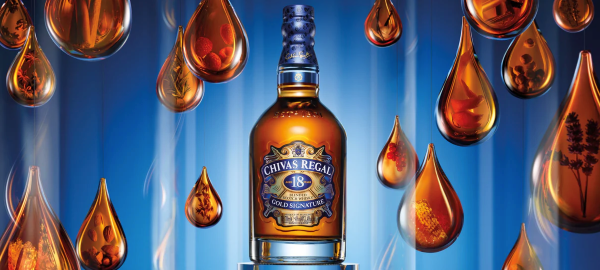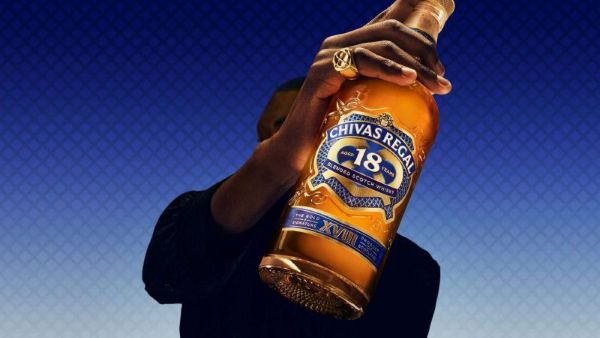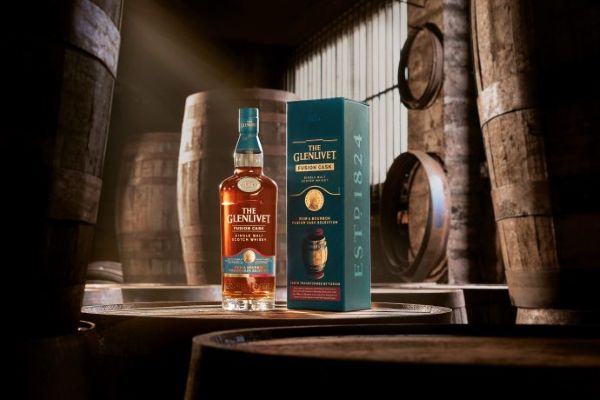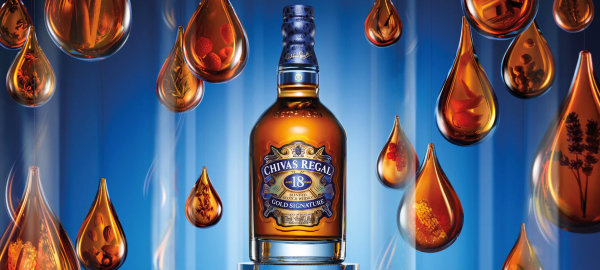Stormy Waters at Pernod
The head of the French spirits giant had a simple message for investors – forget the short-term turbulence and focus on the more favourable long-term trends. Ian Fraser sifts through the company's latest annual results for news on its Scotch whisky portfolio …
"Over the past two fiscal years, we've been navigating through what we call the perfect storm – geopolitical tensions, macroeconomic challenges, and this, after two decades of growth." Presenting disappointing annual results last Thursday, Alexandre Ricard, 53, chairman and CEO of Pernod Ricard, summarised the fallout of a difficult period for the group but seemed remarkably optimistic about the future.
Rather than just reefing in the sails, battening down the hatches, and hoping for the best, he said the Paris-based group has been "working on evolving our operating model to be fit for the future", with what he called "discipline and agility". He added: "We've protected our margin [while] building our brands and gaining share everywhere we can."
Thanks to the foresight of his forebears, Ricard – who had been in command for a decade and uses less management jargon than his peers at Diageo – said Pernod is blessed with a "diversified portfolio", which is perfectly balanced between "an aged portfolio of brands…. and our non-aged portfolio".
In a separate results statement Chivas Brothers –Pernod's whisky arm whose brands include Chivas Regal, Ballantine's and The Glenlivet, revealed that its sales for the year to 30 June 2025 had slipped 3.4% versus FY24.

This represented a faster pace of decline than its parent company, as well as a change from the first half of FY25, when Chivas Brothers' sales were down 2%, against a 4% fall for Pernod, and from FY24, when Chivas Brothers' sales were down 1.6%, against 4% for the group. So, having out-performed the group until as recently as nine months ago, Chivas is now acting as something of a drag on it, which could be seen as a worrying sign for Scotch.
However, the company highlighted a few points of light, notably in Africa and the Middle East, where sales jumped 22%, and Brazil, where sales were up 7%, saying these "reflected the continued opportunities for Scotch whisky to reach new consumers". More worrying was the situation in China where overall Pernod Ricard sales were down 21%.
Asked by UBS analyst Sanjeet Aujla about how a fresh ban on the drinking of alcohol at official Chinese dinners, introduced this May, is affecting sales, Ricard replied that the announcement was an "official reminder" of a ban first imposed by Xi Jinping in 2013, and that "the impact is notable indeed".

Within its Scotch portfolio, Ballantine's grew by 3% to 9.1m cases – just shy of the 10m prediction by Martin Purvis of Commercial Spirits Intelligence. However, its value sales were flat, implying softer pricing. In a bid to keep itself fresh and attract new drinkers, the brand is ahead of the curve in diversifying into "spirits drinks", most recently with the launch of Ballantine's Sweet in Poland in February.
Among his few direct references to Scotch in his results presentation, Ricard praised Chivas Regal – whose sales were up 2% to 4.8m cases – for having put in a "good performance." That followed a 1% fall in value sales, and a 6% drop in volume in FY24. Turkey, where the brand's sales soared by 48%, was a major contributor. Ricard also mentioned Chivas Regal's sponsorship of the Ferrari F1 team, which was announced last November but went viral in August after Monégasque Ferrari driver Charles Leclerc donned a specially made kilt.
The Glenlivet grew 1% to 1.4m nine-litre cases, and though value slipped 4% it was a marked improvement on FY24 when the single-malt's sales tumbled 12% by volume and 6% by value. In an analysis of Scotch whisky exports, drawing on Martin Purvis and Duncan MacFadzen's Commercial Spirits Intelligence, whisky writer Dave Broom warned that single malt, which accounts for only 8% of global Scotch sales, "can no longer be expected to ride to the rescue of the wider Scotch category".

Chivas Brothers' Royal Salute blend, aged 21 years and over and which retails for anywhere north of £110 a bottle – put in a disheartening performance. Volume tumbled by 13% to 200,000 cases, while value plunged 18%, making it the second-worst performer among Pernod's strategic international brands after Martell cognac – which suffered from severe trade restrictions in China.
Perhaps putting a brave face on things, Chivas Brothers called its recent downturn a "modest dip" and used FY19 as a starting point to show it has enjoyed a compound annual growth rate (CAGR) of 3% over the past six years.
Chivas Brothers chairman and CEO Jean-Etienne Gourgues – also Pernod Ricard's executive vice president for global brands since 1 August – said: "Our FY25 performance shows pockets of positivity, despite a difficult global trading environment and geopolitical volatility impacting the Scotch whisky industry."
"What remains clear however, is that Scotch can and will continue to hold its resonance with a global audience, despite these conditions. It is fantastic to see Chivas Regal and Ballantine's back to value growth and, looking ahead, we continue to be well positioned in the market thanks to our diverse portfolio. As a business, we remain optimistic about the long-term opportunities for Scotch, even as we continue to navigate the challenges of today's market".
At the group level, Pernod Ricard's organic sales slid by 3% to €10.959bn, down from €11.598bn in FY24 – with a 6% fall in "reported" sales primarily blamed on negative currency impacts, challenging market conditions in the US and China, and tariff uncertainty. Profits from recurring operations slid 0.8% to €2.951 billion from €3.116bn.
Since both figures exceeded analysts' expectations – as Jefferies' analyst Edward Mundy pointed out, the consensus was for a 3.2% fall in sales and a 3.1% fall in profits – the company's shares bounced back by 8.5% on results day. However, that cannot hide the fact that Pernod's shares have actually fallen 54% since their peak of €214.5 in May 2023. Diageo's are only down 45.6% over the same period.
Ricard concluded on a positive note, saying he believes the worst of the storm has passed and that Pernod is in a "transitional environment," beyond which annual growth of 3% to 6% is likely. "Let's not forget that, beyond the current short-term disruptive environment, the underlying trends are favourable for the long-term growth of premium spirits."

Ian Fraser is a financial journalist, a former business editor of Sunday Times Scotland, and author of Shredded: Inside RBS The Bank That Broke Britain.
